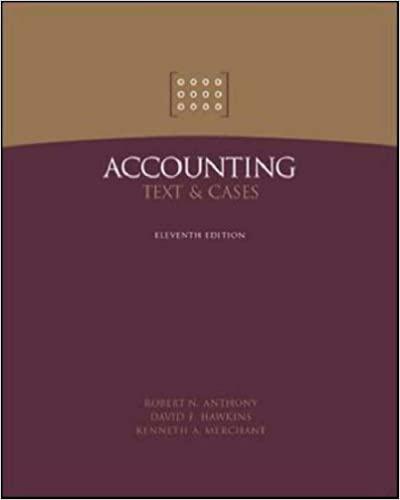Choosing aircraft to acquire when expanding your business is a critical decision in Airline. In addition to deciding on the specific aircraft to acquire, you
Choosing aircraft to acquire when expanding your business is a critical decision in Airline. In addition to deciding on the specific aircraft to acquire, you must also decide on how to finance your acquisitions. Making a good decision will lead to lower operating costs, increased profitability, and higher return on equity. Aircraft purchases can be funded out of cash on hand, new debt, or equity issuance. Each funding method has a cost, and the new asset is depreciated at a rate of 1.75% per quarter in Airline. The cost of debt is easiest to calculate, since the long-term rate is fixed at 9% in the simulation. It might not seem that there is a cost to using cash, but you need to consider the opportunity cost of alternative investment options. The cost of equity is the most difficult to assess, but keep in mind that shareholders expect a return on their investment, and issuing stock will dilute shareholder equity. In addition to purchasing aircraft, there is also an option to lease. The advantage of a lease is that no capital investment is required to acquire aircraft. Buying may be a better option if the aircraft will be used for a long period of time.
1. There are many ways to calculate the cost of equity. One fairly simple way is to consider the additional dividend that would have to be paid on the shares of stock that are issued to maintain the expected return for all investors. What would be the additional cost if the dividend is 12 per share each quarter, and you issue 150,000 new shares to finance an aircraft purchase? What is the annual return to the investor if the stock price is $16 and there is no change in price?
2. Assume an aircraft costs $4,000,000 to purchase and $150,000 to lease. Compute the quarterly expenses for purchasing the aircraft with all cash, all loan, all stock, and to lease by completing the table below
|
| Cash | Loan | Stock | Lease |
| Capital Required | $4,000,000 | $4,000,000 | $4,000,000 | $0 |
| Cost of Capital* |
|
|
|
|
| Depreciation @ 1.75% per qtr |
|
|
|
|
| Total Quarterly Expense |
|
|
|
|
*Note: Assume a CD would earn 4%; the loan rate is 7% per annum; stock price is currently $16 with a quarterly dividend of $0.08 per share.
3. Why might you not want to use just stock to fund your capital investment? What other factors might you consider when evaluating the investment options? Which option (or combination of options) from the table in question 2 makes the most sense?
Step by Step Solution
There are 3 Steps involved in it
Step: 1

See step-by-step solutions with expert insights and AI powered tools for academic success
Step: 2

Step: 3

Ace Your Homework with AI
Get the answers you need in no time with our AI-driven, step-by-step assistance
Get Started


